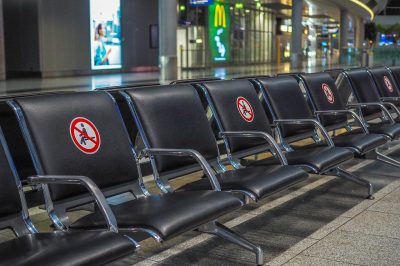Features of successful societies
Successful societies are often pluralist ones that recognise people’s racial, ethnic, cultural, faith or no-faith identities in public life. Equal opportunity is guaranteed by law to ensure all groups feel they are included. Successful societies typically hold similar characteristics and in order to build and sustain them, a few key ingredients are essential:
Family Values
The first ingredient centres on family values, especially the moral upbringing of the young generation. Putting children at the heart of family and social life and raising them with better education, health and moral character are primary concerns of not only the parents but the wider society.
Care for the Vulnerable
The second is how a society looks after its weak and vulnerable, especially the grandparents and elderly people. This is where faith has had a pivotal role in history. A society where the elderly end up in care homes and suffer in silence while their own adult children ignore their old parents is a hollow one.
Grandparents have a wonderful repository of life experience and can be of invaluable help in a volatile ‘me first’ age. In return they enjoy the company and affection of the loving little ones. With some planning this can be a win-win situation in a family, even economically.
Health Care
The third is how a society takes care of its physically and mentally ill people. Providing universal affordable health care facilities for all is a necessity. Britain is far ahead of many developed countries, with the NHS often described as a “national treasure”. However, as with any public service, it requires sufficient funding and political support to ensure it can continue to serve all of society. No wonder it was featured as the central theme of the opening ceremony of the 2012 London Olympic Games.
Environment Protection
The fourth is protecting our environment and reducing or reversing the effects of climate change and global warming. Abrahamic faiths teach us that human beings are bestowed stewardship over Earth, a role that should be taken literally and seriously. Society, especially its religious leaders and groups, all need to play their part in building and sustaining a flourishing planet for generations to come.
Morality and Public Ethics
The fifth is to harmonise morality, spirituality and public ethics in serving others. Just as the Bible teaches its followers to ‘serve thy neighbour’, it is incumbent on Muslims to care for their neighbours, irrespective of background. Human misery is now palpable in personal and family life as well as societies and nations.
The material wealth of the rich few and economic poverty of the majority due to amoral or unethical leadership and the status quo is exacerbating many social ills. Fear of, and phobia against, others is costing communal peace and harmony.
Conclusion
Whilst the overwhelming majority in a society are decent, unless they become active in their communities and civic duties the onslaught of negativity and other social ills will continue; change does not come by itself. Concerned citizens should now be more proactive to voice dissent to the misinformation and fear mongering perpetuated by corrupt individuals and groups.
Mainstream media should also be under social pressure to serve people with objective information and balanced opinions on issues of importance and not show clear bias towards particular groups that serve their own interests.
The hallmarks of a decent society are its diversity, tolerance and acceptance of those who are less privileged. Xenophobia, prejudice or racism must be addressed immediately and with transparency and fairness by both society and the government. In these strange times decent people should raise their strong and organised voice in social media, mainstream media and public life.
At the end of the day every citizen has a unilateral duty to foster concord and build partnerships to promote equality so that we can live at peace and ease with each other. We have a duty to participate, engage and contribute in society in order to improve it. We have a duty to be good neighbours and show concern and share one another’s joys and pains, and to provide support and help wherever we can.
A nation thrives on the service ethos of people who, as a force for good in the society, play an ambassadorial role of decency and civility to other nations. As conscious citizens we should {help one another to virtue and God-consciousness and do not help one another to sin and transgression} (Al-Ma’idah 5:2).
Pages: 1 2

